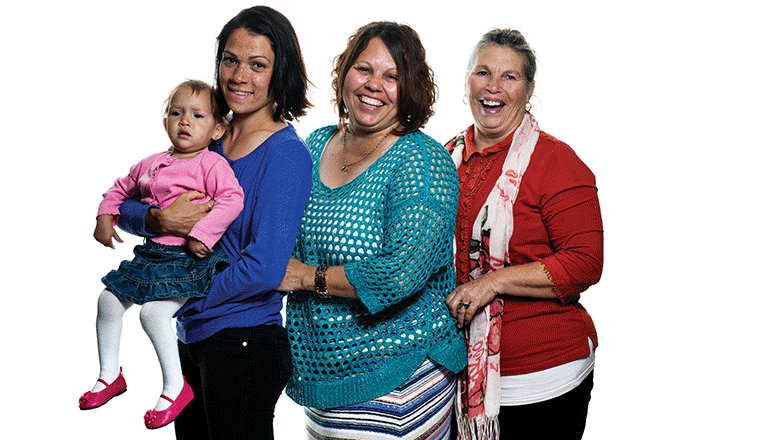Search
Showing results for "mental health aboriginal"
Research
The Prevalence of Stimulant and Antidepressant Use by Australian Children and AdolescentsA minority of 4- to 17-year-olds with ADHD and major depressive disorder were being treated with stimulant or antidepressant medication
Research
Crowding and other strong predictors of upper respiratory tract carriage of otitis media-related bacteriaStreptococcus pneumoniae, Moraxella catarrhalis, and nontypeable Haemophilus influenzae is associated with otitis media
Research
LIFECYCLE - Early Life Stressors and LifeCycle HealthLIFECYCLE is a significant and visionary project to establish an integrated set of long-term world-wide cohorts and clinical trials, which can be investigated and compared across the full life of cohort participants.

News & Events
Urgent need to reduce preventable deaths in Aboriginal MumsA study by researchers at The Kids Research Institute Australia has found Aboriginal mothers are at a significantly greater risk of preventable death than other Australia
Research
The Development and Implementation of a Culturally Safe Survey for Measuring Knowledge, Attitudes and Values around FASD and Alcohol Use During Pregnancy in a Remote Australian Aboriginal Community SettingGlenn Martyn Pearson Symons BA (Education) PhD Candidate B.A. (Hons) PhD. Director of First Nations Strategy and Leadership; Head, First Nations

News & Events
Meet the Finalists: Illuminate PitchFest 2024Illuminate PitchFest is back! We are excited to introduce you to 10 trailblazing researchers who will be taking to the stage this February to pitch their bold and bright ideas.

News & Events
Major grants fuel child health researchSix researchers from The Kids Research Institute Australia have been awarded $8.9 million in prestigious Investigator Grants from the National Health and Medical Research Council.
Research
Inside the black box of youth participation and engagement: Development and implementation of an organization-wide strategy for Orygen, a national youth mental health organization in AustraliaThe involvement of young people in the development, implementation and evaluation of youth mental health services, policy and research programs is essential to ensure they are appropriate and responsive to the needs of young people. Despite the increasingly central role that youth engagement and participation plays internationally, such activities are rarely described in detail.
Research
Acceptability, feasibility, and program outcomes of an equity-focused, adapted community-based healthy lifestyle program for children, young people, and their familiesInternational guidelines recommend multidisciplinary intervention programs for addressing childhood obesity. In Western Australia, community-based healthy lifestyle programs for children and young people are insufficient for demand, especially for those over-represented in obesity statistics relating to prevalence. This protocol outlines the implementation and evaluation of an adapted, evidenced, community-based program in Perth, Western Australia.
Research
“Sometimes Our Mob Don't Really Take It Serious Until It's Serious”: The Experiences of Western Australian Aboriginal Adolescents Living With Type 2 Diabetes, Their Parents, and Their Family MembersIn Australia, Aboriginal children experience disproportionate rates of type 2 diabetes (T2D) compared with non-Aboriginal children. The aim of this qualitative study was to explore the experiences of Aboriginal adolescents with T2D and their family members to better understand the influences of T2D on self-management, with findings used to inform an enhanced service model of care.
